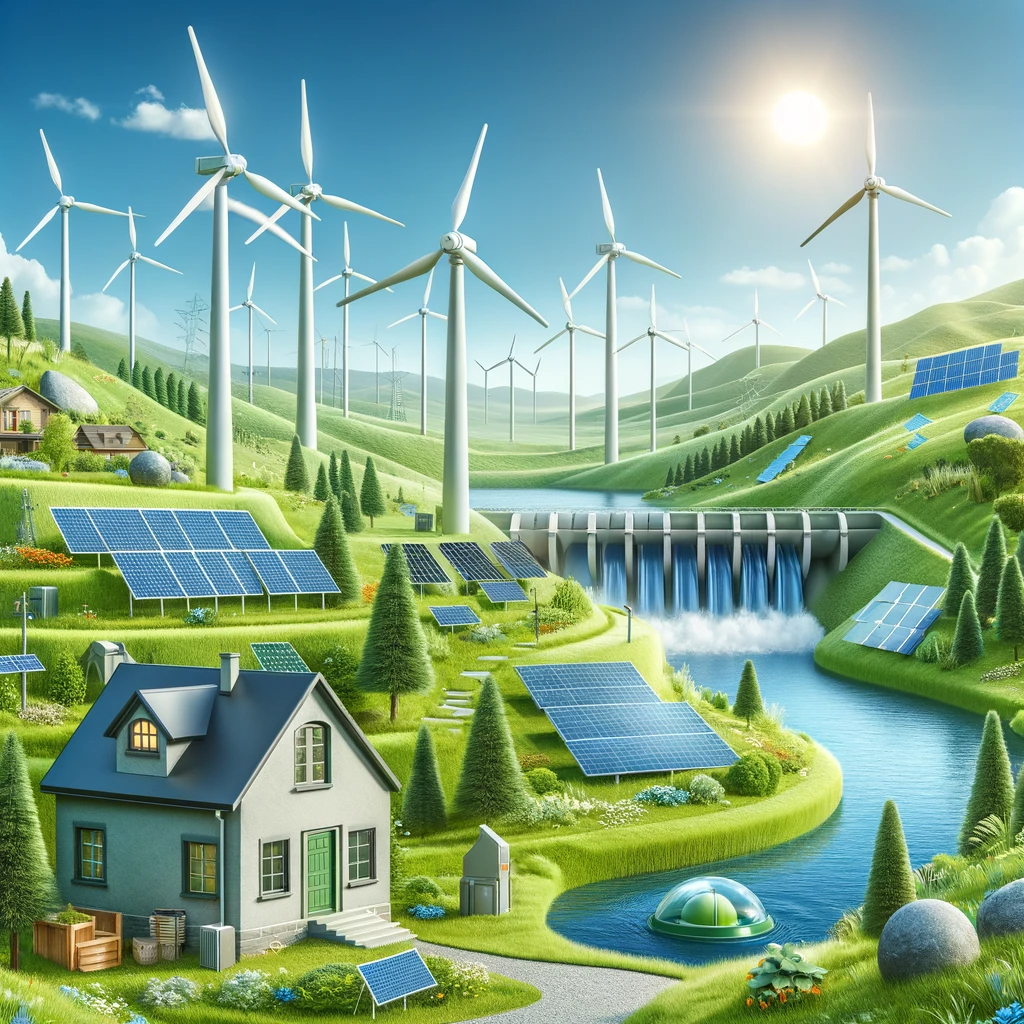Definition
Green Energy refers to power derived from natural, renewable sources like wind, solar, and hydro.
Expanded Explanation
This energy is sustainable, harnessing resources like sunlight, wind, and water, reducing reliance on fossil fuels.
Importance
It is essential in combating climate change, offering eco-friendly alternatives to traditional energy sources.
Context and Usage
It’s used in power generation, transportation, and homes, promoting sustainability and reducing carbon footprints.
Examples
- Example 1: Solar panels on homes exemplify Green Energy, converting sunlight into electricity.
- Example 2: Wind turbines, using air currents to generate power, are another prime example of this energy.
Understanding the Glossary Term
A common disbelief is that Green Energy can’t meet large-scale needs, yet advancements show its growing capacity and reliability.
Related Glossary Terms
- Renewable Energy: Renewable Energy encompasses natural, sustainable sources like wind, solar, and hydro, crucial in generating Green Energy. It’s critical to eco-friendly, sustainable power solutions.
- Sustainable Development: Focuses on meeting current needs without compromising future resources is closely linked with Green Energy.
Visual and Reading Aids
External Resources
- Energy.gov – Offers comprehensive information on various types of Green Energy Jobs.
- GreenEnergyTimes.org – Provides news and updates on Green Energy advancements and projects worldwide.
Related Articles
- Advantages of Renewable Energy over Non Renewable Energy: Renewable energy sources like solar, wind, and water are superior to non-renewable sources like coal, oil, and gas. It emphasizes the environmental benefits of renewable energy, notably its lower greenhouse gas emissions, making it a more efficient and cleaner choice for powering our homes and fuelling our cars.
- Wind Energy Pros and Cons: The Definitive Analysis: Discusses the critical role of wind energy in the global shift towards sustainable living. It explores the multifaceted aspects of wind energy, emphasizing its importance as more than just an alternative power source but as a critical solution in reducing carbon footprints. The article aims to provide a balanced and comprehensive view of wind energy’s advantages and disadvantages, highlighting its significance for experts, environmentally-conscious individuals, and the general public.
Affiliate Links Disclosure:
This post contains affiliate links, meaning I may earn a commission if you click and make a purchase at no additional cost to you. As an affiliate for Amazon, ClickBank, and other affiliate programs, I may be compensated if you buy products or services through my recommendations. Please know that I only promote products I trust and believe will be valuable to my readers.

